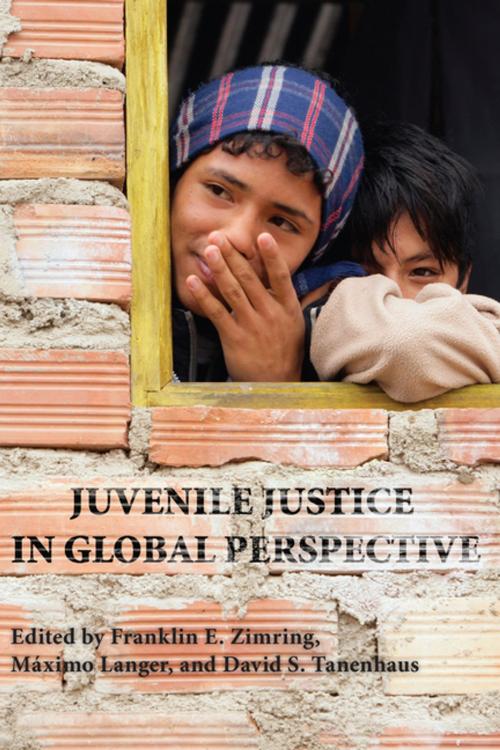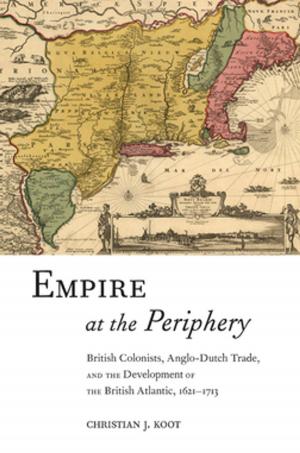Juvenile Justice in Global Perspective
Nonfiction, Reference & Language, Law, International, Social & Cultural Studies, Social Science, Crimes & Criminals, Criminology| Author: | ISBN: | 9781479890446 | |
| Publisher: | NYU Press | Publication: | July 24, 2015 |
| Imprint: | NYU Press | Language: | English |
| Author: | |
| ISBN: | 9781479890446 |
| Publisher: | NYU Press |
| Publication: | July 24, 2015 |
| Imprint: | NYU Press |
| Language: | English |
An unprecedented comparison of juvenile justice systems across the globe, Juvenile Justice in Global Perspective brings together original contributions from some of the world's leading voices.
While American scholars may have extensive knowledge about other justice systems around the world and how adults are treated, juvenile justice systems and the plight of youth who break the law throughout the world is less often studied. This important volume fills a large gap in the study of juvenile justice by providing an unprecedented comparison of criminal justice and juvenile justice systems across the world, looking for points of comparison and policy variance that can lead to positive change in the United States.
Distinguished criminology scholars Franklin Zimring, Máximo Langer, and David Tanenhaus, and the contributors cover countries from Western Europe to rising powers like China, India, and countries in Latin America. The book discusses important issues such as the relationship between political change and juvenile justice, the common labels used to unify juvenile systems in different regions and in different forms of government, the types of juvenile systems that exist and how they differ, and more. Furthermore, the book uses its data on criminal versus juvenile justice in a wide variety of nations to create a new explanation of why separate juvenile and criminal courts are felt to be necessary.
An unprecedented comparison of juvenile justice systems across the globe, Juvenile Justice in Global Perspective brings together original contributions from some of the world's leading voices.
While American scholars may have extensive knowledge about other justice systems around the world and how adults are treated, juvenile justice systems and the plight of youth who break the law throughout the world is less often studied. This important volume fills a large gap in the study of juvenile justice by providing an unprecedented comparison of criminal justice and juvenile justice systems across the world, looking for points of comparison and policy variance that can lead to positive change in the United States.
Distinguished criminology scholars Franklin Zimring, Máximo Langer, and David Tanenhaus, and the contributors cover countries from Western Europe to rising powers like China, India, and countries in Latin America. The book discusses important issues such as the relationship between political change and juvenile justice, the common labels used to unify juvenile systems in different regions and in different forms of government, the types of juvenile systems that exist and how they differ, and more. Furthermore, the book uses its data on criminal versus juvenile justice in a wide variety of nations to create a new explanation of why separate juvenile and criminal courts are felt to be necessary.
An unprecedented comparison of juvenile justice systems across the globe, Juvenile Justice in Global Perspective brings together original contributions from some of the world's leading voices.
While American scholars may have extensive knowledge about other justice systems around the world and how adults are treated, juvenile justice systems and the plight of youth who break the law throughout the world is less often studied. This important volume fills a large gap in the study of juvenile justice by providing an unprecedented comparison of criminal justice and juvenile justice systems across the world, looking for points of comparison and policy variance that can lead to positive change in the United States.
Distinguished criminology scholars Franklin Zimring, Máximo Langer, and David Tanenhaus, and the contributors cover countries from Western Europe to rising powers like China, India, and countries in Latin America. The book discusses important issues such as the relationship between political change and juvenile justice, the common labels used to unify juvenile systems in different regions and in different forms of government, the types of juvenile systems that exist and how they differ, and more. Furthermore, the book uses its data on criminal versus juvenile justice in a wide variety of nations to create a new explanation of why separate juvenile and criminal courts are felt to be necessary.
An unprecedented comparison of juvenile justice systems across the globe, Juvenile Justice in Global Perspective brings together original contributions from some of the world's leading voices.
While American scholars may have extensive knowledge about other justice systems around the world and how adults are treated, juvenile justice systems and the plight of youth who break the law throughout the world is less often studied. This important volume fills a large gap in the study of juvenile justice by providing an unprecedented comparison of criminal justice and juvenile justice systems across the world, looking for points of comparison and policy variance that can lead to positive change in the United States.
Distinguished criminology scholars Franklin Zimring, Máximo Langer, and David Tanenhaus, and the contributors cover countries from Western Europe to rising powers like China, India, and countries in Latin America. The book discusses important issues such as the relationship between political change and juvenile justice, the common labels used to unify juvenile systems in different regions and in different forms of government, the types of juvenile systems that exist and how they differ, and more. Furthermore, the book uses its data on criminal versus juvenile justice in a wide variety of nations to create a new explanation of why separate juvenile and criminal courts are felt to be necessary.















